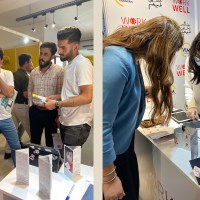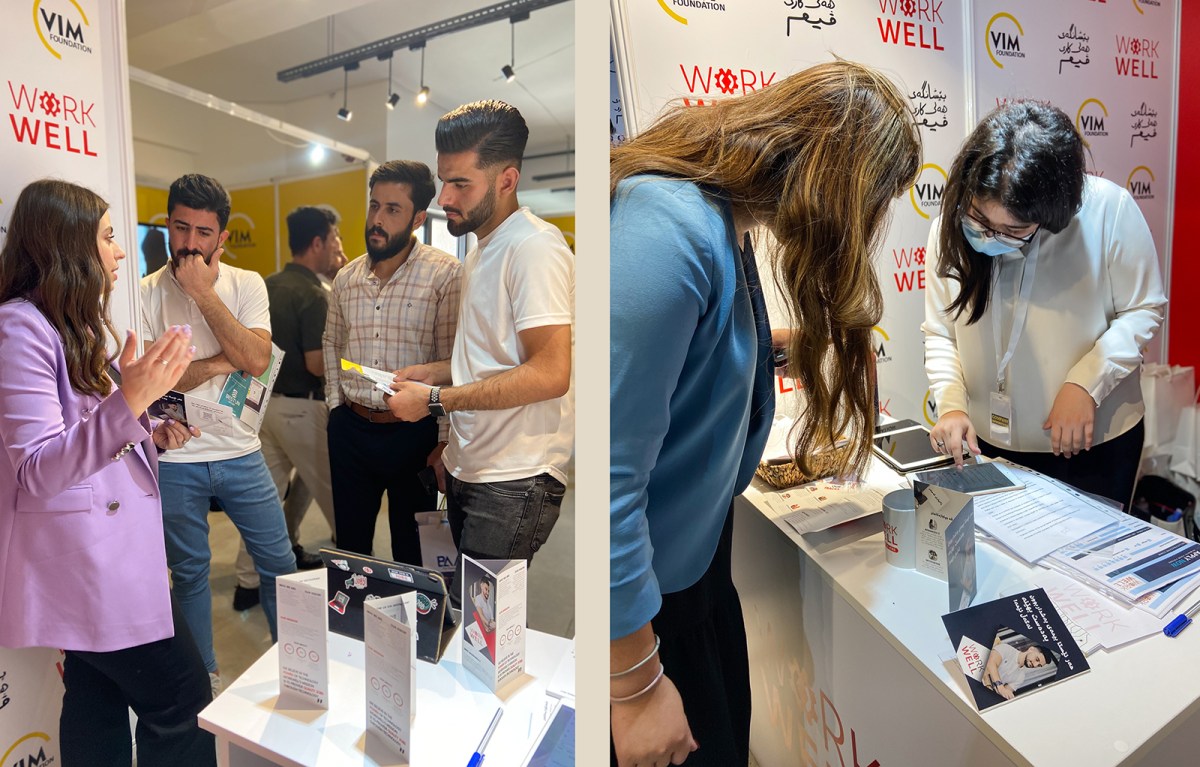You shine your dress shoes, press your shirt, print out your resume, and head out the door, full of anticipation. It’s been a year since you graduated with your engineering degree, but between COVID, war, and corruption, you don’t have a job. That’s why the news of a job fair is so exciting. With more than 50 companies attending, you’re sure you’ll find something.
You arrive at the job fair and are shocked. The line of people waiting to get in stretches down the street and snakes around the block. It seems like half of the city’s university graduates are here. Out of your friends who haven’t emigrated, one out of four doesn’t have a job, but still. This many people? It’s got to be in the thousands. Finally, you enter. You stand up straighter and head over to a company’s booth, rehearsing your introduction in your head.
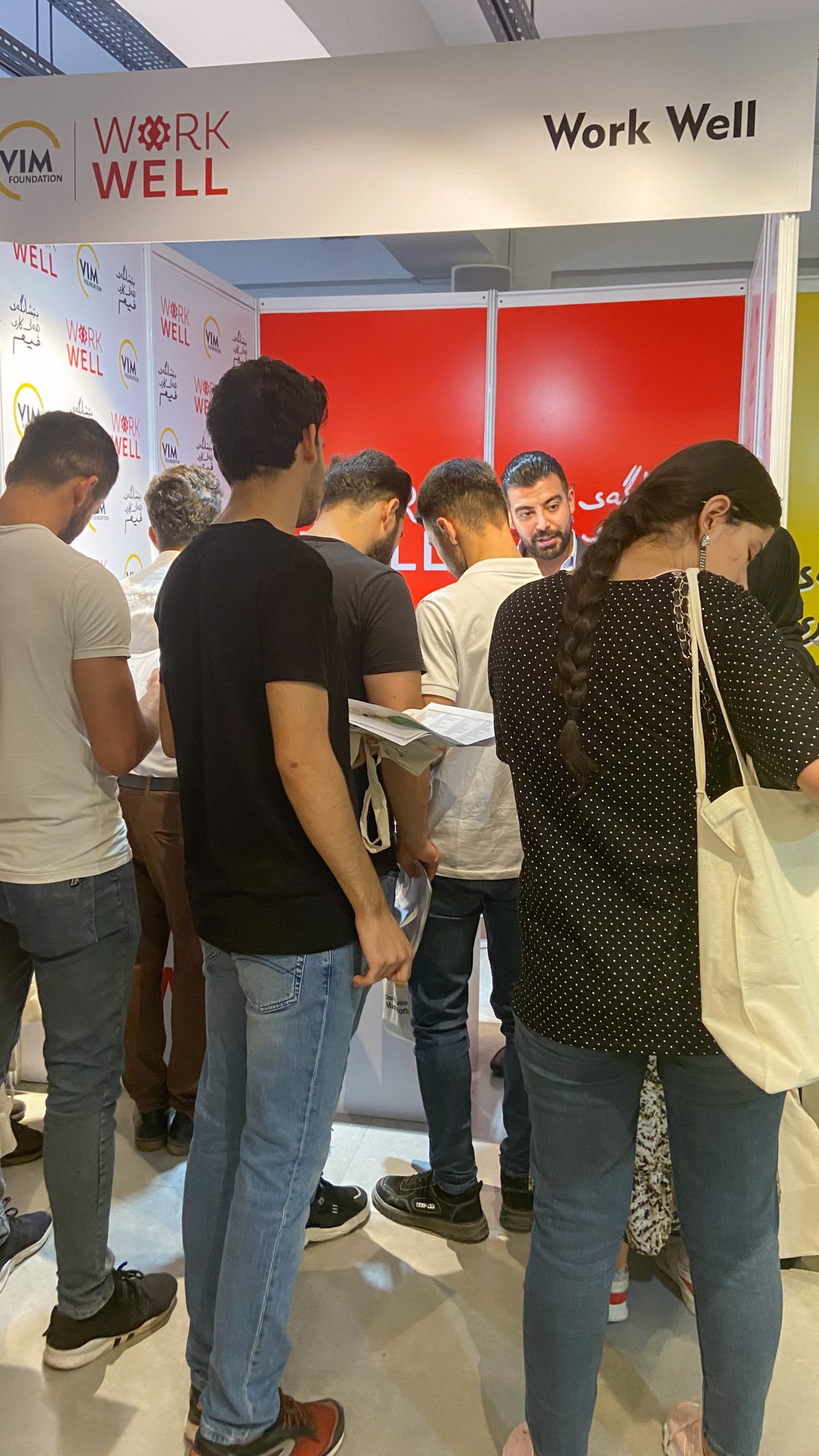
As you listen to the recruiter, your heart sinks. You don’t know what digital marketing is. Your resume doesn’t look like some of the others in the recruiter’s “keep” pile. Who knew a cover letter was important? You go to the next booth, and a similar thing happens. You realize your English isn’t good enough. You don’t know anything about accounting software or how to build a website. Your shoulders slump.
You see a girl from your university in another booth, and she waves you over. Just as you start commiserating about the lack of jobs in this country, you see her nametag. She’s working in this booth, representing a tech hub. As you listen, your heart slowly unfists itself.
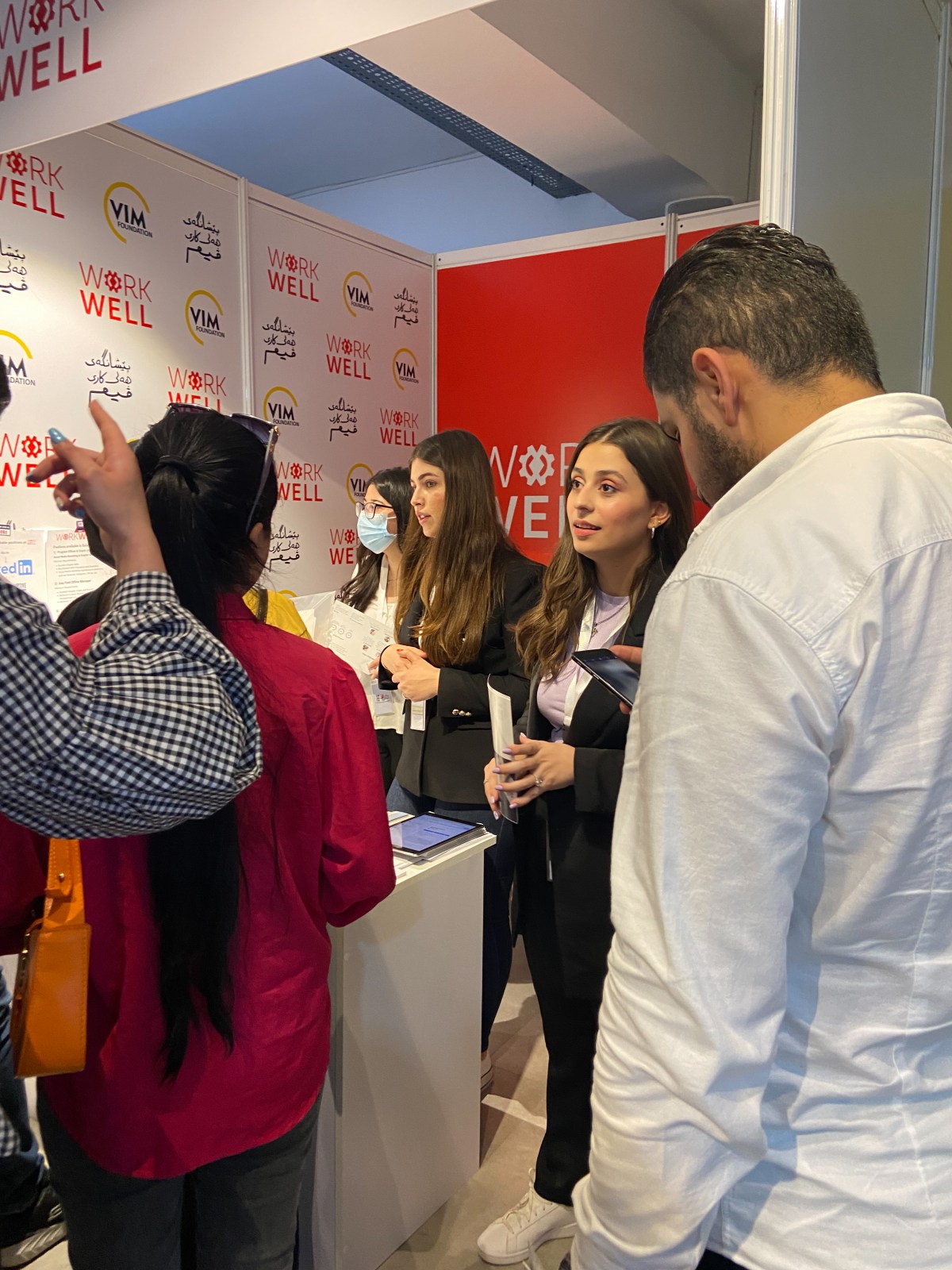
At job fairs across northern Iraq, our tech hub teams are letting recent graduates know all is not lost when making career dreams a reality. Our tech hubs help young people gain the skills they need to be competitive in Iraq’s growing job market. Tech hub students, called workers, take classes in business IT, social media marketing, website design, online accounting, consulting, and English so they can be more competitive in the modern Iraqi job market. Workers receive career coaching so they can make their entrepreneurial dreams a reality. Our classes mix workers from different ethnic groups, religions, cultures, and educational backgrounds to foster a sense of community across disparate groups. We offer opportunities for microwork, so young people, especially those in former war-torn communities, can earn an income with little more than a smartphone and an internet connection.
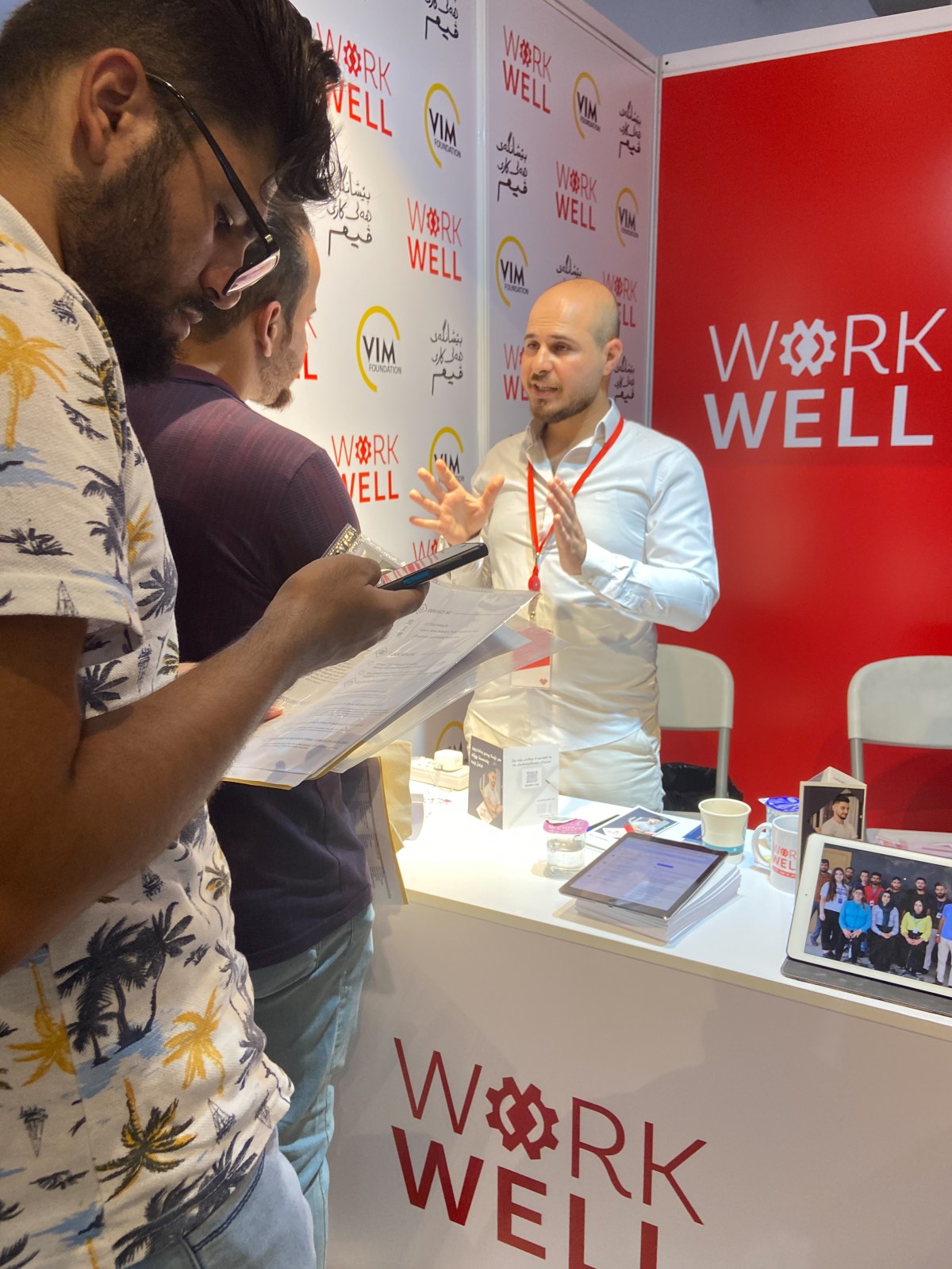
Iraq’s job market is brimming with opportunities, but there are gaps in the labor market. Dilnaz, a program officer with Preemptive Love and an advanced IT instructor, thinks that the gap exists because young people learn subject matter expertise at university, but they don’t always learn practical job skills. Many university students and recent graduates do not know how to write a resume or a covering letter or how to conduct themselves in a job interview. Not all majors teach IT skills. Not every university offers English as a Foreign Language (EFL) classes or conducts classes in English, even for English majors. At the same time, the job market in Iraq craves candidates with IT skills, digital marketing savvy, and English language proficiency.
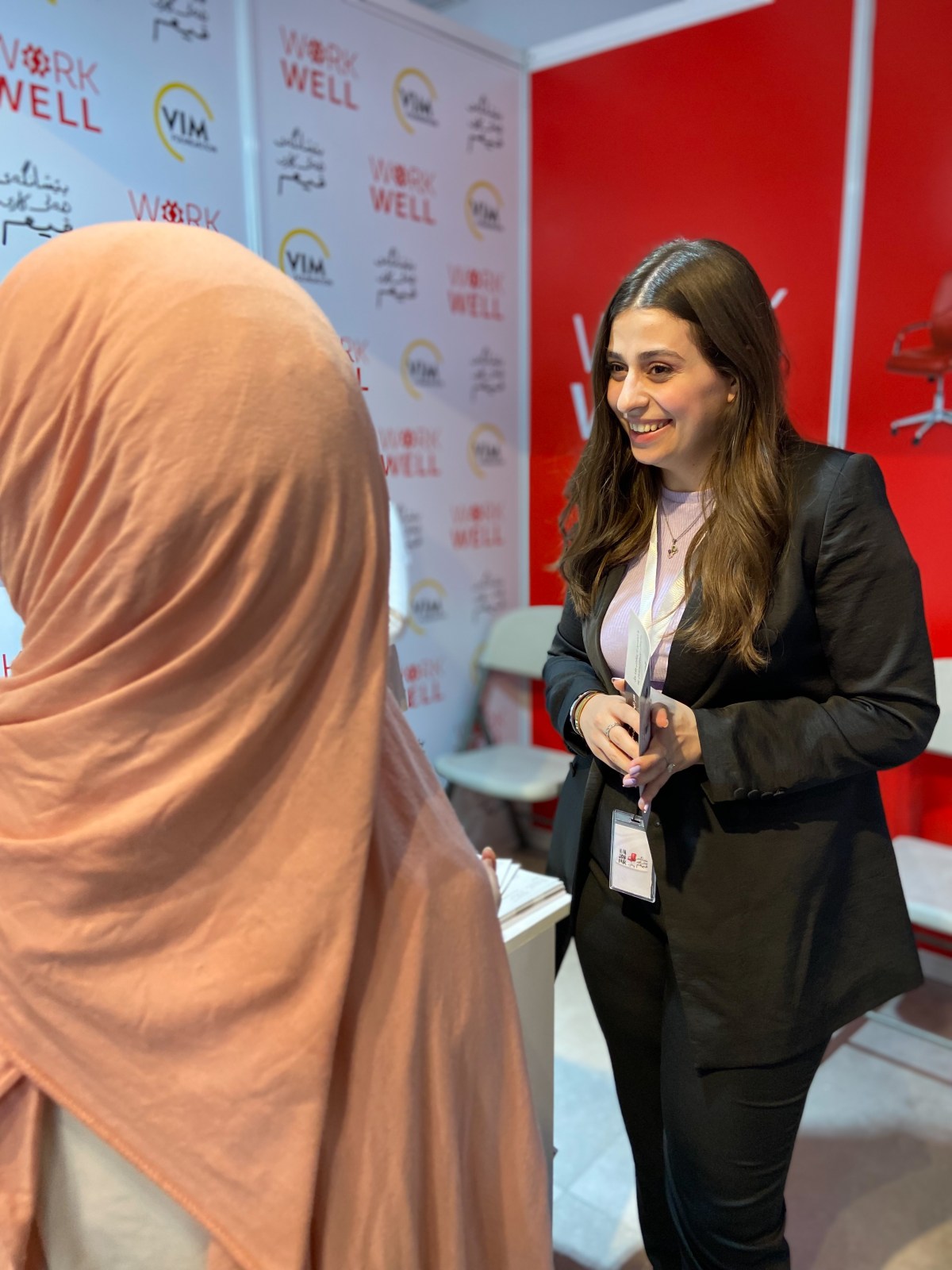
For those young people who’ve had to flee war, poverty, or violence, our tech hubs offer a chance to rebuild their lives. Yazidis who survived the ISIS attack on their ancestral homelands, internally displaced people (IDPs) who lived through the years of war after the invasion, and Syrian refugees resettled in northern Iraq learn business, IT, and soft skills in our tech hubs. With these skills, they find jobs or start their own businesses, keeping their families and communities afloat. Some workers earn income with microwork as they build up their newly acquired skills with our advanced training classes.
Once job seekers realized they didn’t have the skills they needed to be successful in their chosen career paths, they rushed over to our tech booth. We received 1,000+ applications for the tech skills and English training programs. Despite the long hours of the event, visitors commented that our tech hub staff was very kind and friendly throughout the day. If we couldn’t help someone who came to us, we guided them to the right booth to get the help they needed.
The problems and scarcity caused by war and violence have also created opportunities. With the training programs offered by our tech hubs, young people in Iraq will gain the skills they need to seize these opportunities and rewrite Iraq’s war-torn past into a present of resilience and possibility.

